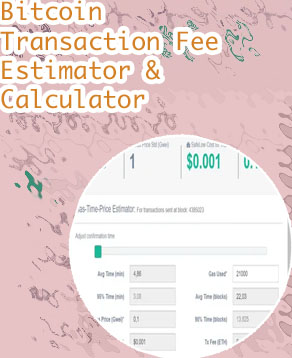When are miner fees lowest ethereum
Transaction Costs and Failed Transactions
Gas is a unit representing computational power that is required to process requests or transactions on Ethereum. Gas is measured to estimate the fees needed for a transaction to be processed within the network. ETH or Ether is the currency that pays for gas units to be processed. Gwei is a unit of ETH that is used to pay the transaction fee. Low gas fee crypto The culprit has a name that should be familiar to any consumer who feels pain at the pump — "gas fees" — but otherwise has nothing to do with fuel (although the use of energy for crypto mining could also raise costs). It's a term that refers to the fee users pay to cryptocurrency networks to help manage parts of the transaction, such as validating users and payment processing.
Crypto gas fees meaning
Are you interested in testing our business solutions? Please do not hesitate to contact me. What are Crypto Transaction Fees and How they Work Despite these issues, Ethereum is still one of the largest platforms, hosting hundreds of decentralized finance (DeFi) applications and Non-fungible tokens (NFTs), in fact, the hype for NFTs and DeFi were major contributing factors for why Ethereum gas fees reached record highs last year.

Reasons for the Increasing Cost of Gas Fees
You can pay for transactions using Ether. Ether serves two purposes. First, it prevents bad actors from congesting the network with unnecessary transactions. Second, it acts as an incentive for users to contribute resources and validate transactions (mining). Each transaction in Ethereum constitutes a series of operations to occur on the network (i.e. a transfer of Ether from one account to another or a complex state-changing operation in a smart contract). Each of these operations have a cost, which is measured in gas, the fee-measure in Ethereum. Gas fees are are paid in Ether, and are often measured in a smaller denomination called gwei. Get your daily recap of Bitcoin, DeFi, NFT and Web3 news from CryptoSlate These other blockchains' cheaper gas fees come with their own set of concerns. Gas prices are often lower due to lower traffic volumes in those blockchains and a significantly fewer number of DApps operating on them, at least when compared to Ethereum.
Eth swap fees
With EIP-1559, Ethereum is moving from a purely bidding-based system to a hybrid approach where the network determines a base fee given the current network load, while allowing users to pay a tip to the miners for faster transaction processing. While simple at first sight, the new method has its intricacies that are worth exploring in more detail. 1. MAX BASE FEE AND PRIORITY FEE SIMPLIFICATION Ethereum's transaction fees continue to fluctuate, but they haven't changed much since proof of stake rolled out—the update was not intended to change fees.

